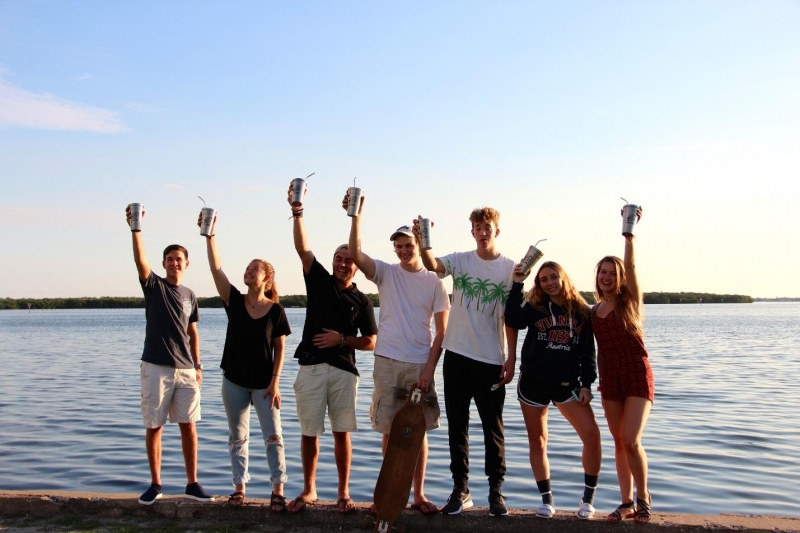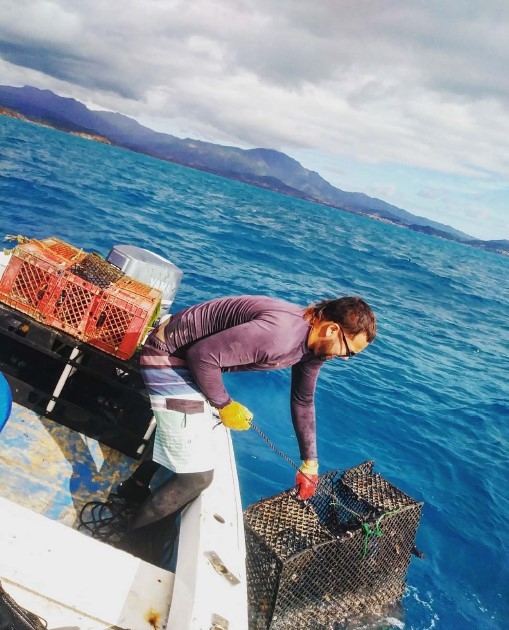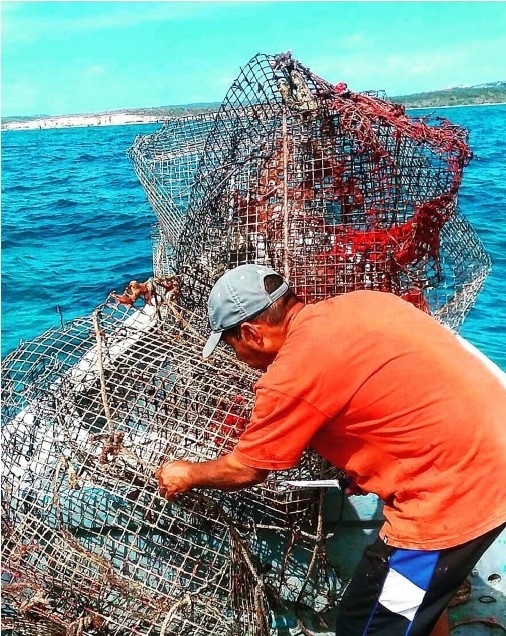The NOAA Marine Debris Program’s (MDP) Florida and Caribbean region includes the state of Florida and the territories of Puerto Rico and the United States Virgin Islands (USVI; St. Croix, St. John, and St. Thomas). This area is surrounded by clear blue water full of diverse coral reefs, fish, and other marine life. The region is no stranger to tourism, fishing, and natural hazards, such as hurricanes, and each of these events can generate marine debris. Although the negative impacts of marine debris can be seen across Florida and the Caribbean, all is not lost. Let’s take a tour through MDP’s active Florida and Caribbean projects and see how they are taking steps to reduce the impacts of marine debris.

Starting in St. Petersburg, Florida, Eckerd College, nestled on Boca Ciega Bay, is working to address the root source of the marine debris problem on campus with the support of a NOAA Marine Debris Prevention grant. The initiative, “The Sea Around Us,” encourages self-reflection and positive change to reduce, and eventually eliminate, single-use plastic consumption on campus. By offering courses on plastic marine debris and implementing incentive programs to reward behaviors that reduce single-use items, students are becoming more mindful of their choices and aware of their impact. Eckerd College has also installed water filling stations, distributed bamboo utensils to students and faculty, and eliminated plastic bags in the bookstore.
Moving further south into the Caribbean, Hurricanes Irma and Maria heavily impacted the U.S. Virgin Islands in 2017, depositing large amounts of marine debris in areas with mangrove-fringed shoreline. Through the support of a NOAA Marine Debris Removal grant, the University of the Virgin Islands’ Center for Marine and Environmental Studies is tackling the problem by hosting a series of “Great Mangrove Cleanups” in marine protected areas and NOAA’s Coral Reef Conservation Program Management Priority Areas off the coast of St. Thomas, St. John, and St. Croix. The goal is to remove over 12,000 pounds of debris from approximately five miles of vulnerable and ecologically-important mangrove shoreline. In addition, the project will create a U.S. Virgin Islands Marine Debris Action Plan, which will coordinate and prioritize marine debris prevention, removal, and research activities across the U.S. Virgin Islands.
The last stop on the tour is another popular Caribbean destination. The Ocean Foundation, with the support of a Fishing for Energy grant, a partnership between the National Fish and Wildlife Foundation, Covanta, and NOAA MDP, is addressing derelict and illegally-placed fishing traps in Puerto Rico. Derelict fishing traps can capture or entangle wildlife and damage marine habitats. In addition, anglers who harvest fish from illegal fishing traps compete with licensed fishers in the area. To remedy this, a comprehensive removal effort, along with documentation of the magnitude of unauthorized trap fishing in Puerto Rico, will not only improve the health of the marine environment, but also lead to improvements in regulation compliance. The project also includes the development of a long-term disposal plan for derelict fishing traps, management recommendations, and educational materials on the impacts of derelict fishing gear in Puerto Rico.
All of these projects, and many others throughout Florida and the Caribbean, will continue to take on marine debris with the support of the new NOAA MDP Florida and Caribbean Regional Coordinator, Ashley Hill. Ashley joined the Program in February and will work with partners to address the impacts of marine debris throughout the region. For more information, please reach out to Ashley at ashley.hill@noaa.gov.


